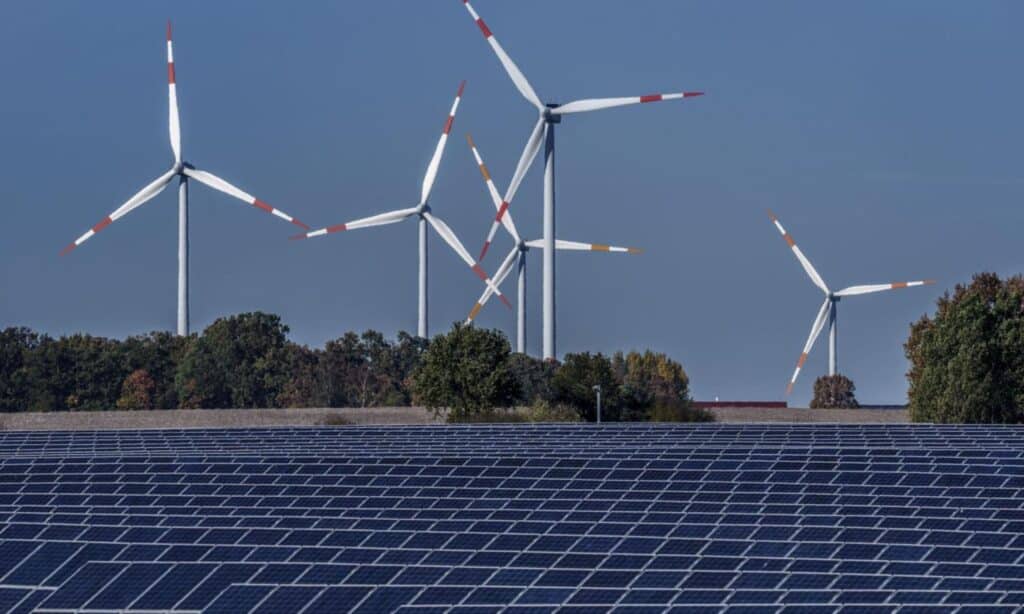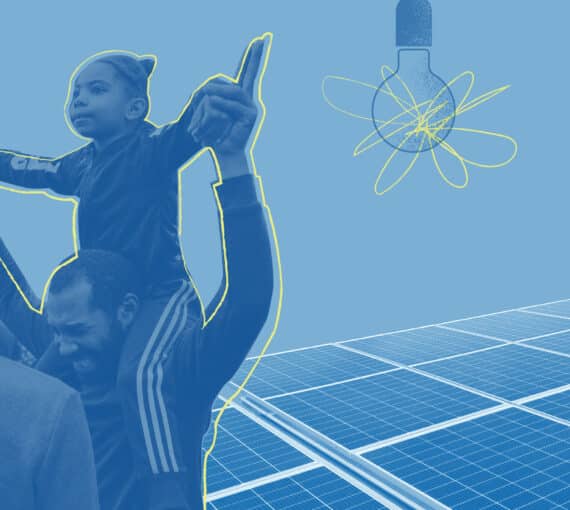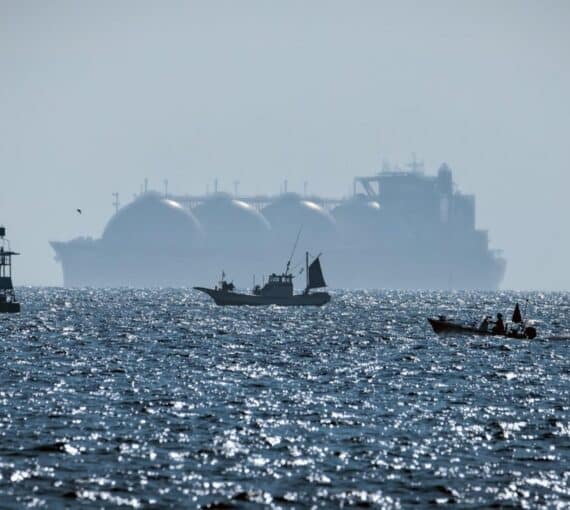
Climate action is arriving in small steps. Canada moved ahead with plans to clean up the electricity grid, cap harmful emissions from fossil fuels and make electric vehicles more available and affordable. These advances are driving down emissions and coming with jobs and health benefits.
“Progress, but not fast enough.” It’s a common headline these days when it comes to climate action — not fast enough for a climate-safe future in which the 1.5 C goal set by the Paris Agreement to prevent global temperatures from rising to catastrophic levels is kept alive.
It’s easy to miss momentum that arrives in small steps rather than huge leaps. But climate policies and regulations are working to bring down emissions, with big gains expected once they kick into higher gear and loopholes that favour oil and gas use are closed.
An independent assessment for the Canadian Climate Institute models existing climate policy against a no-climate-policy scenario and finds that emissions today would be 7 per cent higher, and 41 per cent higher in 2030, without legislated, developing and announced policies.
Last year, Canada moved ahead with plans to clean up the electricity grid, cap harmful emissions from fossil fuels and make electric vehicles more available and affordable. Not only do these regulatory and policy advances tackle emissions, but they also come with jobs and health benefits. The rapid pace of announcements for investments in electric vehicle and battery manufacturing points to the economic writing on the wall. The policies are big cost-savers compared to not acting on the worsening climate crisis.
The rapid pace of announcements for investments in electric vehicle and battery manufacturing points to the economic writing on the wall. The policies are big cost-savers compared to not acting on the worsening climate crisis.
And after decades of silence, the world’s spotlight at the COP28 climate summit turned to transitioning off oil, gas and coal. While gaping loopholes remain that risk expanding gas production and rely on unproven technology like carbon capture and storage, the main culprit behind the climate crisis — the fossil fuel industry — was identified.
Fossil fuel greenwashing is being called out and accountability demanded. Ideas from health-care professionals, such as banning advertising for fossil fuels, are gaining traction. Some are calling for a windfall tax on fossil fuel profits as people struggle to pay for rent and food while oil and gas companies rake in record profits.
Then there’s the rise of renewables. The International Energy Agency assesses clean energy growth as “unstoppable.” The agency projects that nearly half the world’s electricity supply will come from renewable energy by 2030. Renewable energy has become the lowest-priced energy in history. Heat pumps and energy efficiency have hit the mainstream.
Indigenous communities demonstrated what leading a transition to a clean energy economy with equitable solutions looks like. Many are gaining energy sovereignty through renewable energy. Outside of utilities, Indigenous nations are the largest renewable energy asset owners in Canada.
Fossil fuel greenwashing is being called out and accountability demanded. Ideas from health-care professionals, such as banning advertising for fossil fuels, are gaining traction. Some are calling for a windfall tax on fossil fuel profits as people struggle to pay for rent and food while oil and gas companies rake in record profits.
Despite these benefits, some provinces, politicians and industries want to put the brakes on climate action, under the dubious pretence of addressing affordability. Alberta and Saskatchewan, in particular, are rejecting climate progress on multiple fronts. Canada’s fossil fuel industry is risking creating stranded assets as it seeks to increase production of products like liquefied “natural” gas, especially in B.C.
Some are calling for effective policies, such as carbon pricing, to be dropped. But climate action based on politics rather than evidence won’t get us where need to go. The carbon levy adds a small amount to inflationary woes compared to the volatile fossil fuel industry, and most people in Canada receive rebates to help with affordability — the most recent in January this year.
We can’t afford more delays to climate action. We can’t afford to reverse course or stall if we want to avoid worsening impacts from extreme weather-related events, such as wildfires, floods and droughts. The momentum for a clean transition must increase as we move away from oil, gas and coal.
That’s how Canada can finally meet climate targets and build more livable communities in the process. The good news is that people in Canada want climate action. It’s time for a “whole society” approach with all levels of government, industry, communities and people doing their part. That’s how to change the headline to “Canada’s action on climate on track to make a big difference.”
This op-ed was originally published in The Star.
Always grounded in sound evidence, the David Suzuki Foundation empowers people to take action in their communities on the environmental challenges we collectively face.



